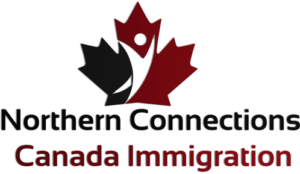On May 28, 2025, the Ontario government introduced the Working for Workers Seven Act, 2025, a comprehensive legislative package aimed at strengthening workplace protections, supporting economic resilience, and modernizing the province’s immigration program.
Building on the success of six previous Working for Workers acts, this latest proposal includes 18 new measures designed to safeguard Ontario workers, particularly in the face of economic uncertainty and impacts from U.S. tariffs.
The bill features a broad range of worker-focused initiatives, including enhanced workplace safety enforcement and expanded support for workers facing layoffs.
Notably, the Act proposes important reforms to the Ontario Immigrant Nominee Program (OINP) — the province’s economic immigration pathway for nominating foreign nationals for permanent residence. Key measures aim to strengthen program integrity and improve responsiveness to labour market needs.
A Clear Message of Commitment to Ontario’s Workforce
“Our government is protecting Ontario workers by standing up for them when they need it the most,” said David Piccini, Minister of Labour, Immigration, Training and Skills Development. “We’re proposing changes that will prepare workers and businesses for the jobs of the future, while helping workers facing impacts from U.S. tariffs and economic uncertainty.”
The legislative package demonstrates Ontario’s commitment to creating safer workplaces, enhancing job protections, and streamlining access to training and career development programs. It also introduces significant proposals that affect the Ontario Immigrant Nominee Program (OINP)—a key pathway for skilled immigrants looking to live and work in the province.
Key Proposed Changes to the Ontario Immigrant Nominee Program (OINP)
The Working for Workers Seven Act, 2025 includes proposals aimed at increasing integrity, efficiency, and responsiveness in Ontario’s immigration system:
- Interview Authority: OINP inspectors would be authorized to conduct in-person interviews with applicants to reduce fraud and improve program integrity.
- Streamlined Application Processing: The government would have the authority to return applications that no longer match job market needs or raise concerns, allowing faster processing of top candidates.
- New Employer Portal: Launching in Summer 2025, a new OINP portal for employers, will allow employers to submit applications directly and electronically. Thus streamlining the process for employers and making it easier for employers to support foreign worker nominations.
- Program Flexibility: The Lieutenant Governor in Council would be empowered to establish or remove immigration nomination streams based on current labour market demands. Emphasising the need for quick and decisive action by applicants to the program.
The OINP remains one of the most popular and active provincial nominee programs and these proposed changes have the potential to impact both future and existing applicants.
What This Means for Workers and Employers
If passed, the act would represent a significant evolution in Ontario’s approach to labour protections, job training, and immigration. It aims to ensure that both domestic and foreign workers are better supported, safer on the job, and better positioned to contribute to Ontario’s economic success.
For candidates who wish to immigrate through the OINP, it will be important to be strategic about your approach and ensure your experience aligns with the occupations that are most-indemand with the program. A new employer portal with help employers most easily and readily support worker applications once rolled out in the summer.
Other proposed changes with the introduction of this new legislation include:
1. Creating Safer Workplaces
Mandatory AEDs: All construction projects with 20 or more workers expected to last three months or longer must be equipped with automated external defibrillators (AEDs). WSIB will offer reimbursements to help businesses comply.
Enhanced Health & Safety Enforcement: New powers to enforce Chief Prevention Officer-accredited Health and Safety Management Systems (HSMS) and introduce an Administrative Monetary Penalty (AMP) regime under OHSA.
Procurement Reform: Public infrastructure project owners may be required to recognize accredited HSMS in procurement decisions.
2. Fighting Worker Abuse and Fraud
Job Scam Protections: Job posting platforms must implement tools to report fraudulent job listings.
Wage Compliance Enforcement: Tougher penalties for employers who falsify payroll records or evade payments.
Privacy and Representation: Consultations will be launched on privacy protections regarding employers’ access to electronic information and on regulations governing talent agents and representatives.
3. Strengthening Worker Support Systems
Mass Layoff Protections: Employees affected by mass layoffs would be entitled to up to three unpaid job search days and must receive information about government training and employment services.
Extended Layoff Periods: Employers could extend temporary layoffs beyond 35 weeks to maintain employment relationships.
Training Access: Accelerated construction of training centres and improved referrals to micro-credential and skilled trades training.
Mobile Youth Training: Expanded funding for mobile training units targeting youth interested in skilled trades.
Proactive Action Centres: A new, agile approach to support workers impacted by layoffs due to U.S. tariffs.
Next Steps
This proposed legislation is currently under review and has not yet been passed. However, it signals Ontario’s strategic priorities for worker protection and economic stability. Stakeholders, including workers, employers, training providers, and immigration applicants, should monitor further updates and prepare for the implementation of these measures. Importantly, applicants should ensure their immigration strategy is properly mapped out and sound to remain competitive.
Need Help Understanding How These Changes Affect You?
If you’re planning to immigrate to Ontario, currently navigating the OINP, or are concerned about how these proposed changes could impact your application and future in Canada, we’re here to support you.
Schedule a personalized one-on-one consultation with one of our experienced immigration consultants. We’ll assess your individual case, help you understand how these potential policy shifts could affect your plans, and guide you through the process with clarity and confidence.
Our team stays up-to-date with the latest government proposals and program updates to help you make informed decisions and stay compliant with evolving regulations.
Contact us today to book your consultation and take the next step toward your immigration goals in Ontario.
The Team at Northern Connections Canada



